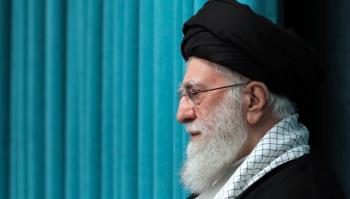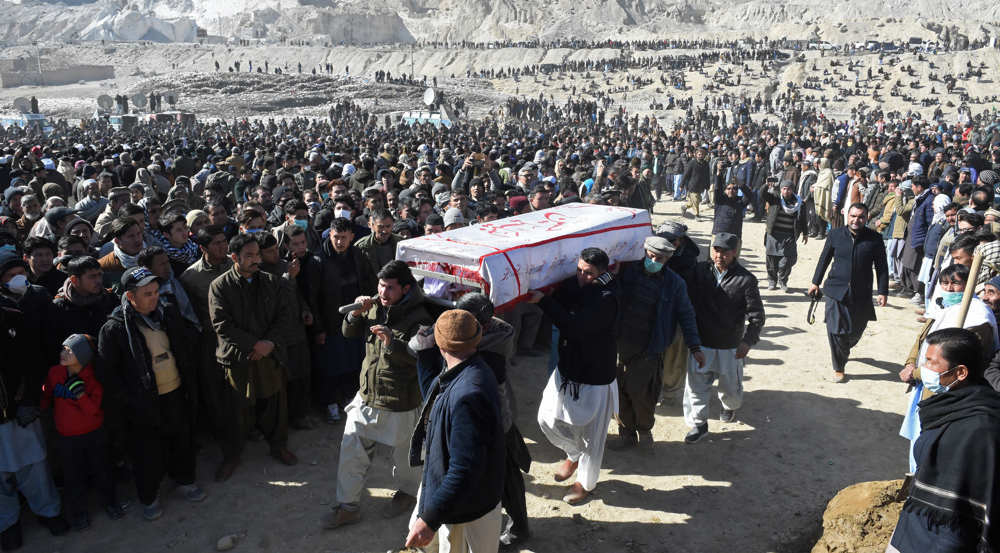Alwaght- Thousands of people gathered on Saturday to bury the bodies of 11 Hazara Shiites who were killed at the hands of ISIS terrorists in Pakistan's Balochistan province on January 3.
Authorities deployed security forces to the city of Quetta where more than 4000 people gathered for the funeral ceremony of 11 slain miners belonging to Pakistan's minority Shiite Hazara community. The miners were brutally killed after being abducted by the ISIS terrorists in Mach area of restive Balochistan province.
Following the incident, the victims' relatives and hundreds of other members of the community sat on a protest along with the coffins having victims’ bodies in the Western Bypass area of provincial capital Quetta amid harsh cold weather, insisting that they will bury the dead only when the prime minister personally visits them to assure protection.
Islamabad finally reached an agreement with the protesters late Friday to arrest the attackers, pay compensation to the families of the victims and improve security for the Hazaras.
“The provincial government will form a joint investigation team to recommend action against those found guilty of negligence leading to the incident,” according to the agreement.
Khan described the sit-in protest as “blackmail,” sparking protests across the country, including in the capital on Friday.
"No premier of any country should be blackmailed like this,” Khan said in televised remarks.
In the wake of mass protests, his office said on Saturday that Khan had flown to Quetta and was expected to arrive shortly.
He visited Quetta after the burial and met people close to the protest site. The prime minister said that the attack on the miners was meant to stoke sectarian conflict in the country.
He had already sent a group of his ministers and top officials to negotiate with the Hazara community for the burial.
The Hazara community, who make up most of the Shia population in Quetta, frequently come under attack by terrorists active in Pakistan's restive and mineral-rich Balochistan province.
In 2013, three separate bombings killed more than 200 people in different Hazara neighborhoods.
Quetta, the largest city of Balochistan, has seen several bombings and shooting attacks over the past years.
The latest agreement also called for setting up a high-level commission headed by Balochistan’s home minister to investigate attacks against the Hazara community in the past 22 years.



























